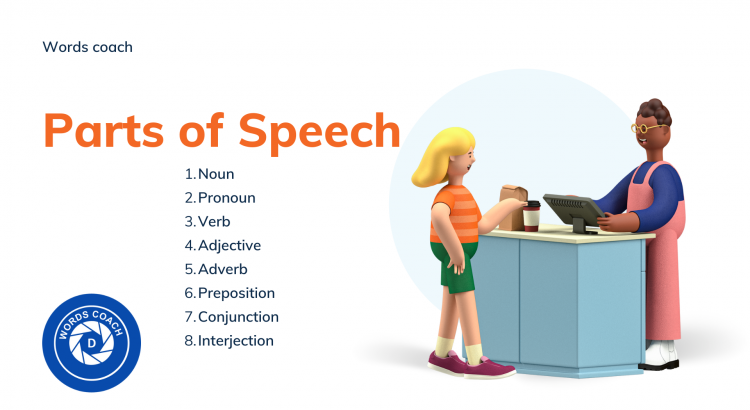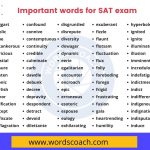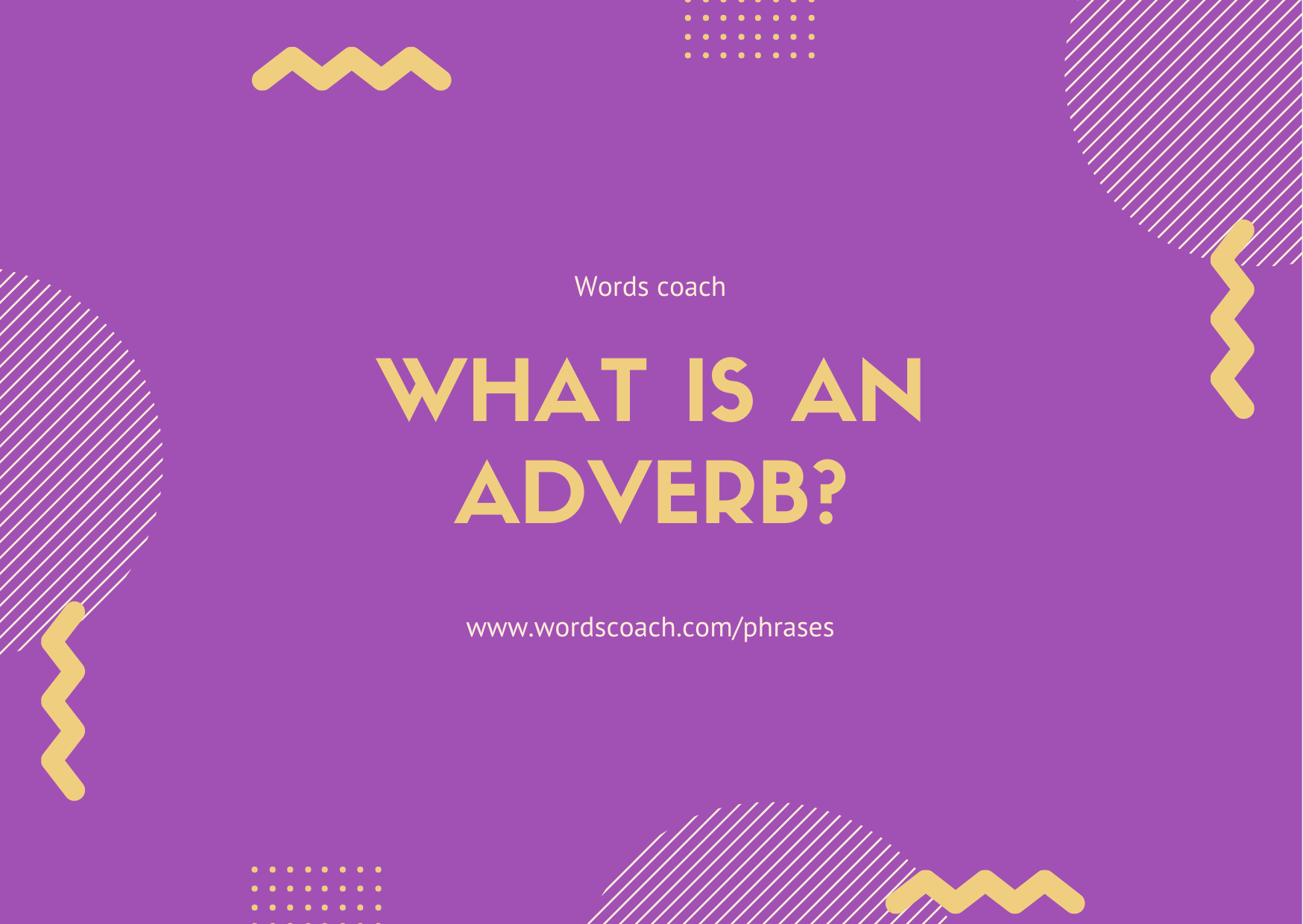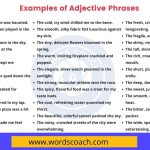Every word is a part of speech.
The part of speech indicates how the word functions in meaning as well as grammatically within the sentence. An individual word can function as more than one part of speech when used in different circumstances.
Parts of speech are the classification of words categorized by their roles and functions within the structure of the language.
There are eight parts of speech in the English language:
- Noun
- Pronoun
- Verb
- Adjective
- Adverb
- Preposition
- Conjunction
- Interjection
Noun
Noun refers to people, places, things, ideas, concepts, etc.
Nouns are often used with an article (the, a, an), but not always. Proper nouns always start with a capital letter; common nouns do not. Nouns can be singular or plural, concrete or abstract. Nouns show possession by adding ‘s.
Nouns can function in different roles within a sentence; for example, a noun can be a subject, direct object, indirect object, subject complement, or object of a preposition.
Examples: pen, New Year, dog, cat, elephant, garden, school, work, music, police officer, France, coffee, football, danger, happiness
Example sentences:
- Michael is a good boy. Melbourne is the best city.
- The teacher told the children to stop chattering in class.
- Raj is good at Science but weak at Maths.
Read more about nouns
Pronoun
A pronoun is used to refer to a noun/noun phrase, or nouns/noun phrases; instead of the repeated use of the same noun(s)/noun phrase(s).
The proper noun is used to name a specific item, for example the names of places or people in a movie or song title.
Pronouns are divided into a range of categories.
Example Sentence:
- Dhvani is beautiful.
- Michael is a good boy. He gets up early in the morning.
- The capital of England is London.
Read more about Pronoun
Verb
A verb is one of the most important parts of speech and is a word which is used to describe action or an ongoing condition. It is considered as the heart of a sentence. There is a main verb and sometimes one or more helping verbs.
Verbs that refer to feelings or states of being, like to love and to be, are known as nonaction verbs.
The verbs that do refer to literal actions are known as action verbs.
Examples: swim, realize, run, Walk, laugh, have, promise, invite, listen, running, winning, being , etc.
Example sentences:
- Leave me alone!
- Alex is going home. He loves his home.
- Don’t try to run before you can walk.
Read more about verbs
Adjective
An adjective is a word which describes a noun or pronoun, there are thousands of adjectives within the English language.
Example: good, useful, big, some, Beautiful, cute, angry, healthy, careful, little, generous, smart, two, small, tall, etc.
Example sentences:
- Alex loves his beautiful daughters.
- The weather is hot and sunny today.
- The small squirrel ran up the tree.
Read more about Adjective
Adverb
Adverbs modify or describe adjectives, verbs, or other adverbs.
It usually answers the questions of when, where, how, why, under what conditions, or to what degree. Adverbs often end in -ly.
Here’s an example:
1. I entered the room quietly.
– Quietly is describing how you entered (verb) the room.
2. A cheetah is always faster than a lion.
– Always is describing how frequently a cheetah is faster (adjective) than a lion.
Examples: silently, quickly, really, nearly, hungrily, never, well, almost, every day, tomorrow, fully, carefully, hardly, etc.
Example sentences:
- When I am running late for work, I eat my breakfast rapidly.
- The boy is crying loudly.
- He is running fast.
- She always reads attentively.
Read more about adverbs
Preposition
A preposition is used in English to show a relationship between two words or phrases. Preposition gives context to nouns in relationship to other nouns or pronouns.
Here’s an example:
She put the pizza in the oven.
– Without the preposition in, we don’t know where the pizza is.
Examples: after, along, above, except, from, near, before, since, about, In, on, at, according to, between, upon, with, to, toward, etc.
Example sentences:
- The boy ran along the street for an hour.
- I saw that news in the newspapers.
- I am going to France. France is in Europe.
Read more about preposition
Conjunction
A conjunction is used as a way of joining two or more ideas or words together. Most commonly you will see the words for, and, not, but, or, yet and so used as a conjunction.
A conjunction connects nouns, noun phrases, clauses or sentences together.
Examples: however, or, so, after, before, either, neither, because, unless, And, since, still, but, etc.
Example sentences:
- I will go to the shop but not before I have had something to eat.
- Julie loves chocolate and chips. She loves pasta, but she hates pizza.
- This is a gift for my husband.
Read more about conjunction
Interjection
Interjections are brief and abrupt pauses in speech, usually used for expressing emotions, reactions and excitement and have no grammatical link to anything else within the sentence they appear.
Examples: aha!, great!, hey!, hi!, oh!, yeah!, oops!, eh!, oh!, ouch!, hi!, well!, Ahem!, etc.
Example sentences:
- Yeah! She’s going with us tonight!
- Wow! Did you see how big that bird was?
- Oh! That feels terrible. Alas! They have lost the match.
Read more about Interjections









